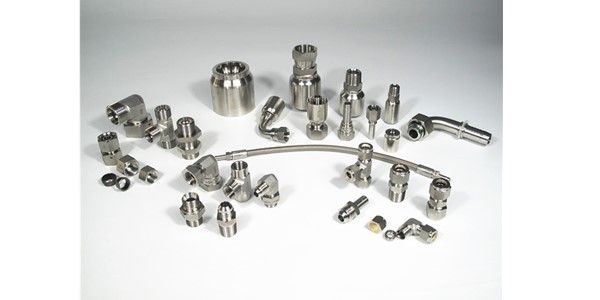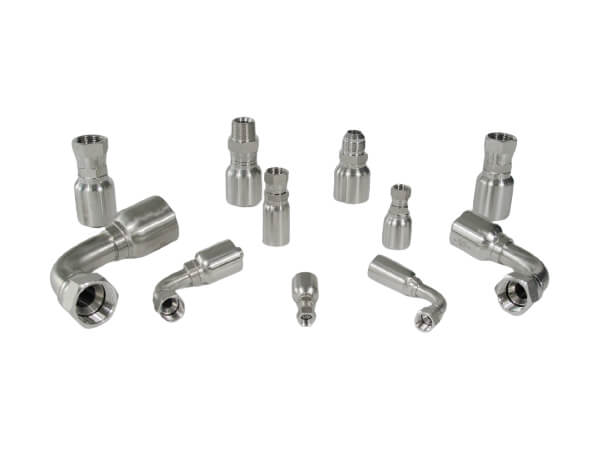
Stainless steel stands out as a miraculous material, distinguished by its omnipresence due to its versatile utility. This alloy has secured its role across numerous sectors, serving as a foundational component capable of being customized to meet precise operational needs, particularly in the fabrication of machinery and equipment. Among its various applications, stainless steel hose fittings and adapters exemplify the components engineered for industrial apparatus. Although alternatives like brass, aluminum, and plastics are viable, stainless steel proves advantageous in several scenarios.
When Durability is Required
In hydraulic systems, hose assemblies are subjected to a wide range of pressures and temperatures during operation. The cyclical nature of these temperature and pressure changes causes the components to expand and contract, which can severely impact the system’s integrity if unsuitable materials are chosen for hose fittings and adapters. Over time, this misalignment of material properties can significantly degrade the system, potentially culminating in the total failure of the hydraulic system.
Opting for hose fittings and adapters crafted from various grades of stainless steel can mitigate these issues. Stainless steel’s resilience against forming micro-cracks under such fluctuating conditions renders it a superior material choice. This inherent durability not only enhances the performance of the task at hand but also significantly boosts the overall lifespan of the hydraulic system.
In Corrosive Environments
Companies often find themselves needing to establish operations in environments that are notably harsh. Industries such as offshore oil drilling, mining, and maritime operations exemplify sectors where the surroundings are inherently corrosive, accelerating the wear and tear on machinery. In such conditions, it’s imperative to select materials capable of withstanding these rigorous challenges.
Particularly, stainless steel, especially the 316 grade, emerges as the material of choice for these corrosive environments. Its composition, enriched with a higher concentration of chromium, empowers it to create a protective layer that guards against the damaging effects of chloride salts. Additionally, the material’s robustness further cements its position as a preferable option. When considering the balance of benefits against cost, no other material matches the value that stainless steel offers in combating the relentless conditions of hostile environments.
When Sterility is Necessary
The food, beverage, and pharmaceutical sectors are governed by stringent regulations aimed at maintaining sterility to safeguard public health. Non-compliance with these regulatory standards can lead to legal actions, financial penalties, and damaging publicity. Consequently, industry-specific standards have been developed to specify the essential equipment needed for the sterile handling of products.
Stainless steel, known for its resistance to a multitude of chemicals, stands out as a material of choice, especially when compared to plastics, which can dissolve or degrade upon exposure to industrial cleaning agents. Therefore, the employment of stainless steel fittings and adapters becomes indispensable for transporting substances within stainless steel piping systems. They play a crucial role in maintaining the sterility of the circulation system, preventing the contamination of product batches by foreign substances, and thus ensuring the integrity and safety of the products.
In HVAC Systems
HVAC systems vary widely in scale, from compact air conditioning units to extensive chillers and air handlers connected by an intricate framework of ducts and pipes. A unifying feature across these diverse systems is their reliance on stainless steel fittings and adapters. This preference stems not only from the material’s strength and durability but primarily from its excellent heat exchange capabilities, which are essential for the efficient operation of HVAC systems. While copper tubing is often favored for constructing heat exchangers due to its cost-effectiveness, the demands placed by the pressure of coolant fluids circulating within the system may necessitate the use of stainless steel fittings and adapters for their superior resilience and integrity.
QC Hydraulics specializes in manufacturing and supplying stainless steel hose fittings and adapters, with focus on stainless steel material only. Should you have any requirements or inquiries regarding our products, please feel free to contact us.
- SS Adapters
- SS Hose Crimp Fittings


